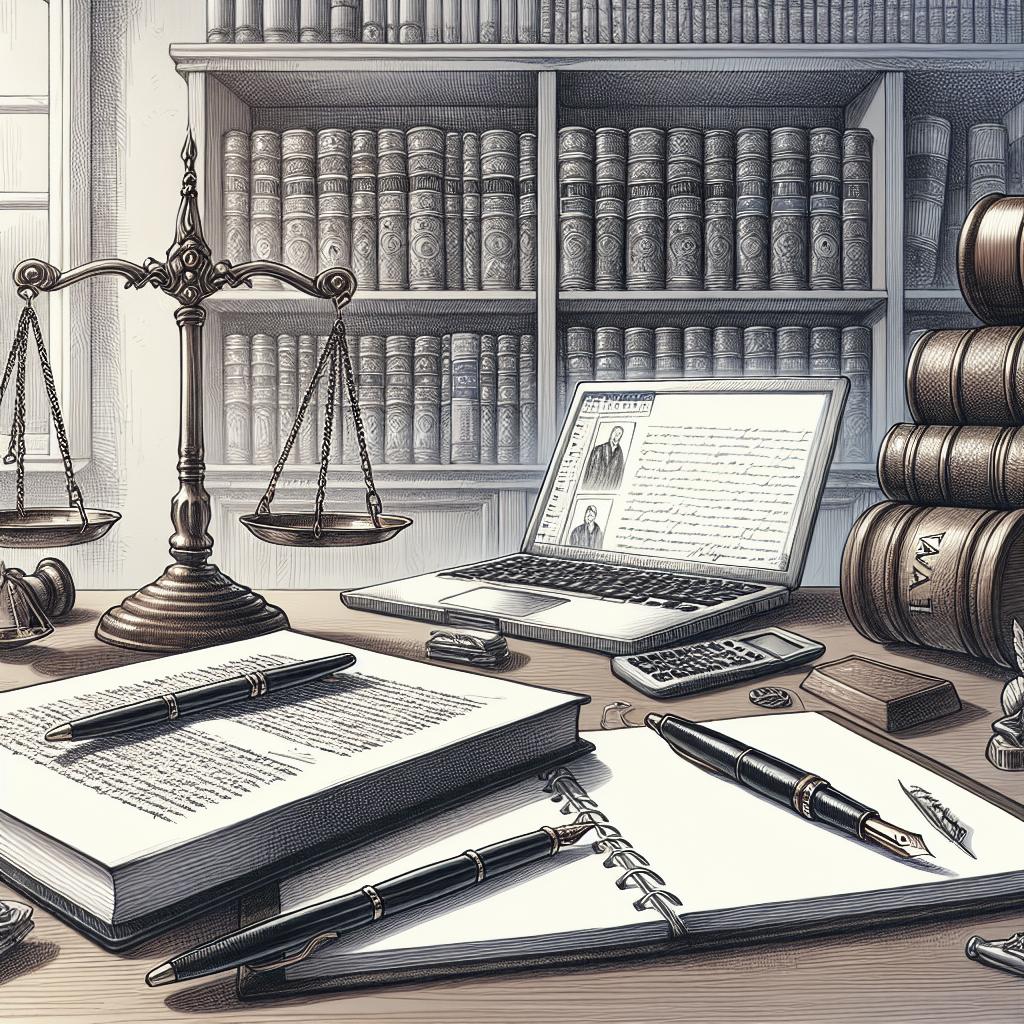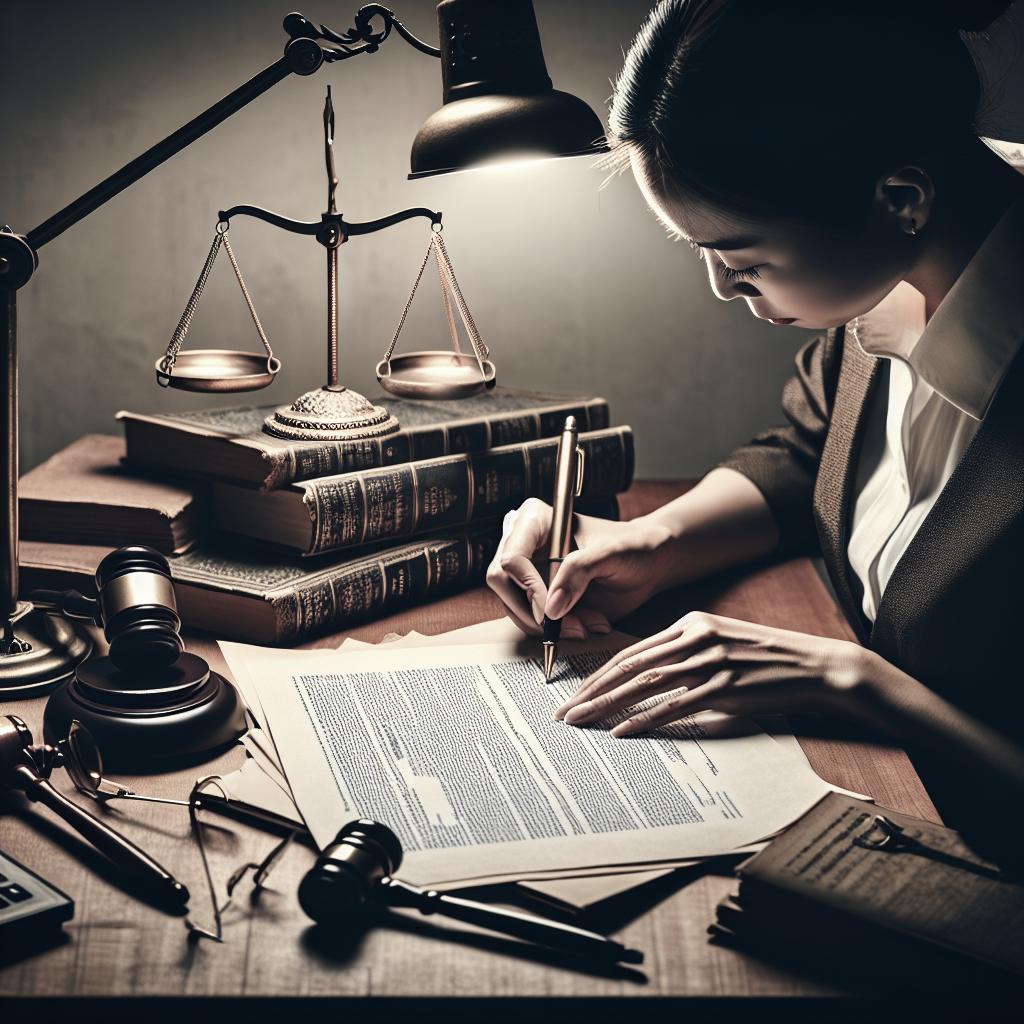“`html
How to Write a Legal Opinion
Writing a legal opinion is a critical skill for attorneys and legal professionals. This comprehensive guide explores the circumstances when a legal opinion might be necessary and the significance of such opinions. We delve into the components that make a legal opinion effective, emphasizing the importance of both professional privilege and confidentiality. The value of seeking professional legal advice is also highlighted, to best position yourself for delivering precise and valuable legal analyses. Concluding with an exploratory glance at the future prospects of legal opinions, this guide aims to arm you with the knowledge to craft compelling and authoritative legal documents.
When might you need a legal opinion?
A legal opinion is often required in various circumstances, such as when an individual or a business is embarking on a new venture that has potential legal ramifications. This could involve understanding regulatory compliance, potential liabilities, or clarifying the interpretation of contractual terms. Legal opinions are crucial for those seeking to make informed decisions in complex legal landscapes.
Moreover, in the realm of corporate transactions, such as mergers and acquisitions, legal opinions provide an assessment of the transaction documents’ legality and enforceability. They serve as a preventive mechanism, ensuring that all parties are aware of their rights and obligations. Furthermore, they are instrumental in litigation scenarios, where understanding the strengths or weaknesses of a legal position can guide strategic decision-making.
Why legal opinions are important
Legal opinions serve as foundational documents that guide clients in making informed decisions. They offer a thorough analysis of the facts combined with an application of the relevant legal principles. This synthesis of law and fact helps clients understand their current position and possible outcomes, paving the way for strategic planning.
The importance of legal opinions also lies in their ability to minimize risks. By providing a clear picture of legal rights and obligations, these documents can avert potential disputes. Furthermore, a well-crafted legal opinion contributes to dispute resolution by offering an objective perspective, often serving as part of the negotiation process.
What makes an effective legal opinion?
An effective legal opinion is characterized by clarity, precision, and a logical structure. It must begin with a concise statement of the legal question and any relevant facts. This is followed by an analysis section, where the applicable laws and their implications on the facts are thoroughly discussed. The opinion should conclude with clear recommendations or conclusions, offering actionable advice to the client.
A high-quality legal opinion also involves rigorous research and a comprehensive understanding of the current legal framework, including any recent case law or statutory changes that might impact the analysis. Critical to effectiveness is the neutral and factual tone used throughout the opinion, ensuring the client receives an unbiased view of their situation.
Legal professional privilege and confidentiality
Legal professional privilege is a fundamental principle that protects the confidentiality of communication between a lawyer and their client. This ensures that clients can seek candid legal advice without the fear that sensitive information will be disclosed. It is essential for maintaining the integrity of the attorney-client relationship, fostering trust and openness.
Confidentiality extends beyond the attorney-client privilege, encompassing any third-party communications involved in rendering a legal opinion. Legal professionals must be vigilant in safeguarding all information relevant to the case, ensuring compliance with ethical standards and legal obligations. This preservation of confidentiality is crucial not only for client trust but also for maintaining professional credibility.
Seeking professional legal advice
Engaging with professional legal services is vital when the implications of legal decisions are complex and far-reaching. Professional legal advisors bring an in-depth understanding of the law, paired with practical experience in navigating diverse legal scenarios. Leveraging their expertise ensures that clients receive sound, strategic, and contextually relevant guidance.
Whether dealing with personal matters, business transactions, or potential litigation, seeking professional legal advice ensures that the legal opinions provided are thorough and tailored to specific needs. This partnership with legal experts can be indispensable in achieving favorable outcomes and mitigating potential legal risks.
Share this:
If you found this article on legal opinions insightful, feel free to share it with colleagues and peers who may benefit from understanding the nuances of crafting effective legal documents.
Related
Explore related topics such as the role of legal research in opinion writing , the impact of statutory changes on legal interpretations , and strategic approaches to dispute resolution .
Future Prospects
| Aspect | Key Points |
|---|---|
| When might you need a legal opinion? | Essential for new ventures, corporate transactions, and litigation scenarios. |
| Why legal opinions are important | Facilitates informed decision-making and risk minimization. |
| What makes an effective legal opinion? | Clarity, precision, research, and unbiased advice are vital. |
| Legal professional privilege and confidentiality | Maintains the integrity of the attorney-client relationship. |
| Seeking professional legal advice | Ensures comprehensive, strategic guidance for legal decisions. |
“`


